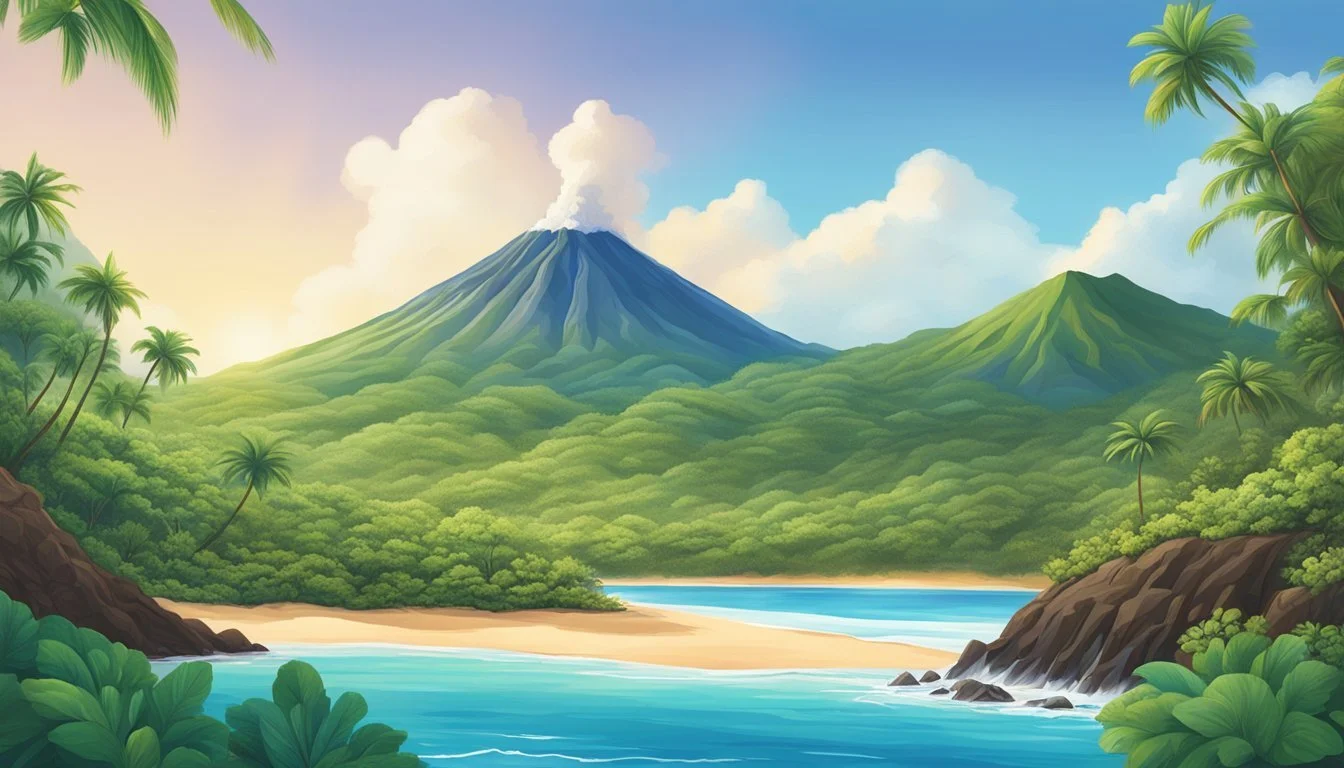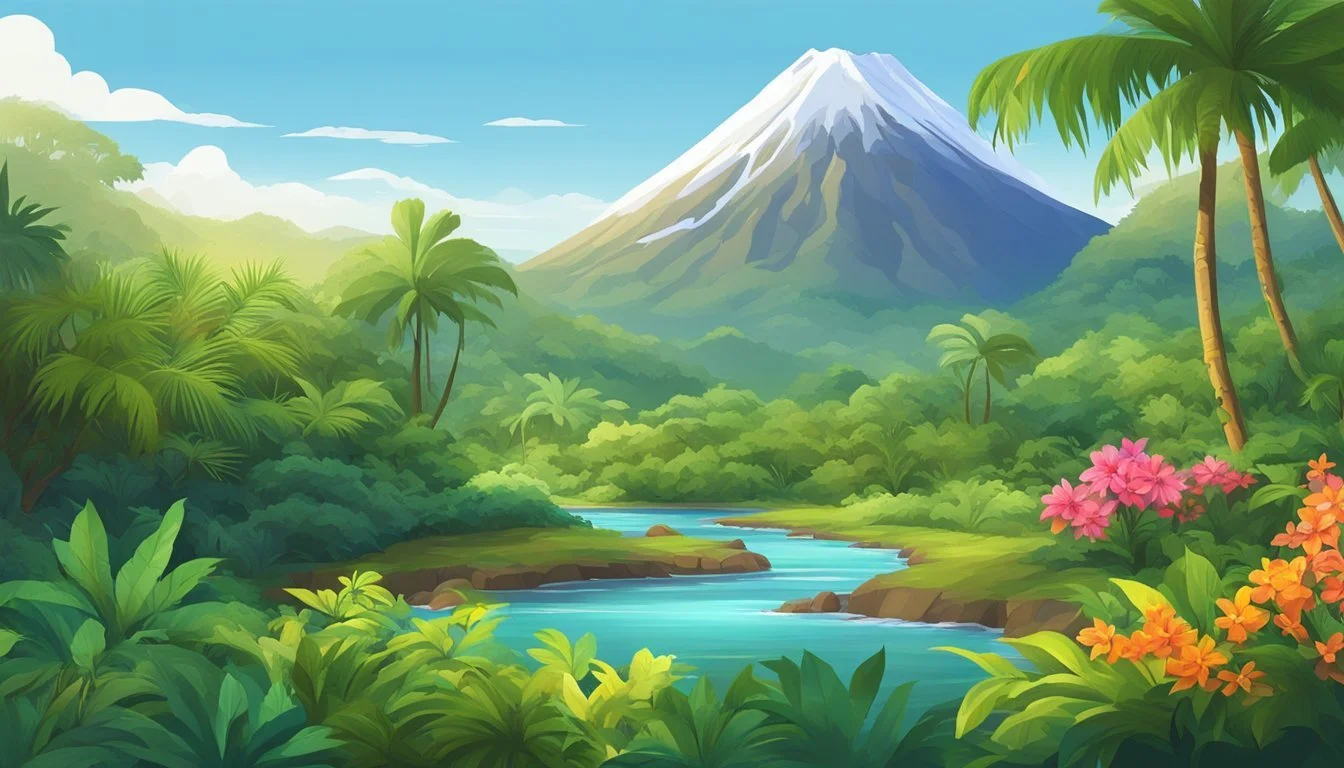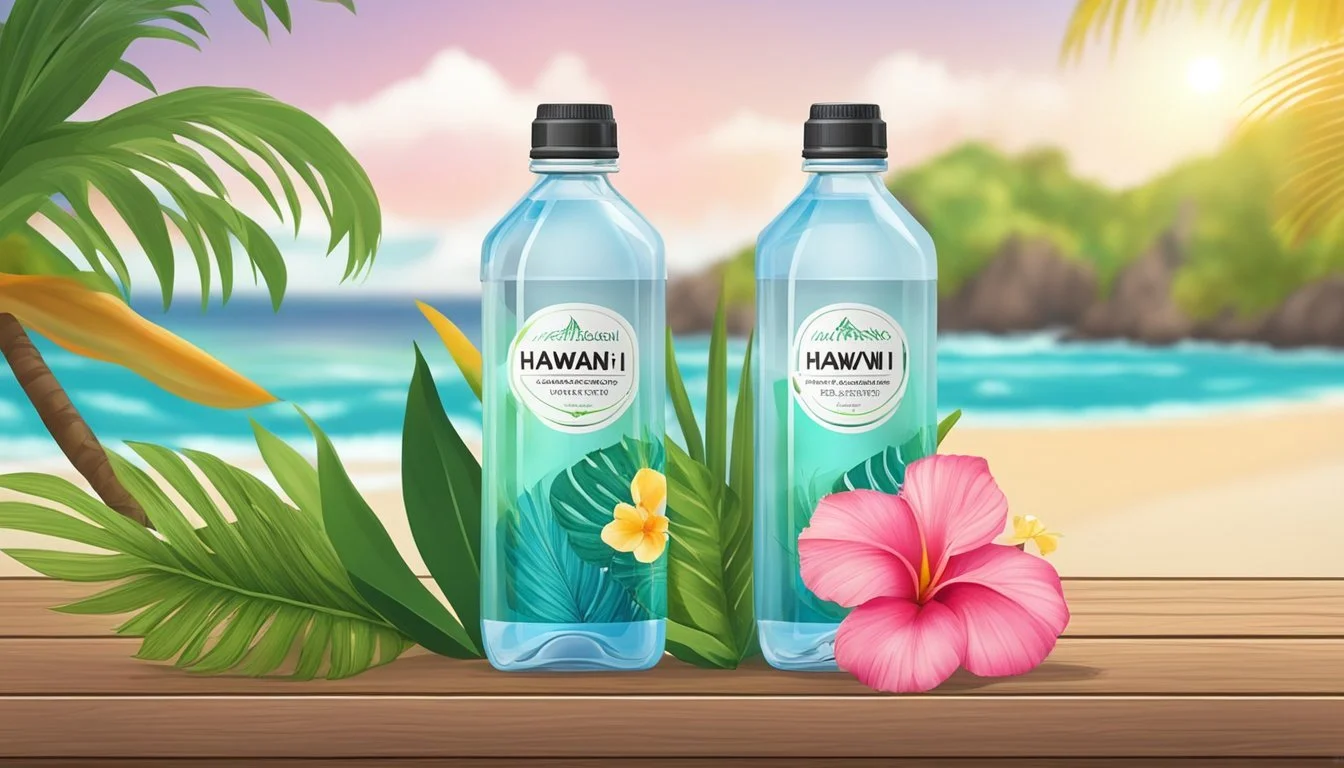Hawai’i Volcanic vs. Alkaline88
Comparing Top Bottled Waters
When choosing between Hawai’i Volcanic and Alkaline88, discerning consumers often look beyond just hydration to the unique benefits each bottled water brings to the table. Hawai’i Volcanic touts its natural alkalinity with a pH ranging from 7.6 to 8.2, sourced from Hawaiian volcanoes, offering pure and refreshing hydration. Meanwhile, Alkaline88 is known for its consistent pH level of 8.8, achieved through a sophisticated ionization process and infusion with electrolytes.
For those seeking the most naturally sourced option, Hawai’i Volcanic presents a compelling choice with its volcanic origins and balanced pH levels. Alkaline88, on the other hand, appeals to consumers who prioritize a high and stable pH along with added electrolytes for enhanced hydration. Both options provide unique benefits, making the decision a matter of personal preference and specific hydration needs.
In exploring these brands, readers will understand the distinctions and advantages of each, helping them make an informed choice about which bottled water aligns best with their lifestyle and health objectives.
Understanding the Basics of Bottled Waters
Bottled waters vary significantly in mineral content, pH levels, and alkalinity versus acidity. These factors contribute to their health benefits and overall quality.
Mineral Content and Health Benefits
Minerals such as calcium, magnesium, and potassium play essential roles in maintaining good health. Bottled waters often contain varying levels of these minerals. For example, volcanic water, filtered through porous volcanic rock, naturally enriches the water with minerals, providing beneficial electrolytes.
Calcium supports bone health and magnesium aids muscle and nerve function. Potassium is crucial for heart health and maintaining fluid balance. Choosing bottled water with a higher mineral content can provide these essential nutrients and support overall wellness.
pH Levels and Their Significance
pH measures the acidity or alkalinity of water on a scale from 0 to 14. Bottled waters typically range from slightly acidic to highly alkaline. Water with a pH below 7 is considered acidic, while a pH above 7 is alkaline.
Alkaline waters, such as those with a pH between 8 and 9, can help neutralize acidity in the body. A balanced pH is essential for proper physiological functions. Understanding the pH level of bottled water helps consumers choose what best fits their health needs.
Alkalinity vs Acidity in Water
Alkaline water is often marketed for its potential health benefits, such as reducing acid reflux and promoting better hydration. High pH levels in alkaline waters help neutralize body acidity, supporting pH balance.
Conversely, acidic waters may offer fewer health benefits and can sometimes contribute to acid build-up in the body. Given the importance of pH balance, selecting alkaline water can be beneficial in neutralizing excess stomach acid and improving overall hydration.
Understanding the basics of bottled waters helps consumers make informed choices about the water they drink, optimizing health benefits through careful selection.
The Distinct Features of Hawai’i Volcanic and Alkaline88
Hawai’i Volcanic water and Alkaline88 offer unique qualities that differentiate them in the bottled water market. While Hawai’i Volcanic draws its distinct properties from its natural volcanic source, Alkaline88 focuses on an advanced enhancement process to achieve high alkalinity.
Hawai’i Volcanic: Source and Process
Hawai’i Volcanic water is sourced from a pristine artesian aquifer located beneath Mauna Loa. The water is naturally filtered through porous lava rock, which enriches it with minerals and electrolytes. This natural filtration results in a smooth, slightly sweet taste.
This water is naturally alkaline with a pH level above 8, providing benefits like enhanced hydration and support for immune function. The water’s mineral content includes essential elements such as silica, which supports bone, hair, skin, nail, and heart health.
Alkaline88: Source and Enhancement Methods
Alkaline88 begins with purified water that undergoes a proprietary ionization process. This method artificially raises the water's pH to 8.8, which makes it notably alkaline. The process often involves electrolysis, which separates the water into acidic and alkaline parts, retaining the alkaline portion for bottling.
Additional electrolytes and minerals are added to enhance the water's flavor and potential health benefits. This approach ensures consistency in the water's alkalinity and offers a clear, crisp taste. Alkaline88 focuses on providing high pH water that aims to support hydration and maintain an optimal body pH balance.
Health Impact and Hydration Benefits
When comparing Hawai’i Volcanic to Alkaline88, it’s important to consider how each water option contributes to overall health and hydration. This includes the role of electrolytes, trace minerals, and the benefits of their respective bottling processes.
Electrolyte Enhancement for Hydration
Hawai’i Volcanic and Alkaline88 both offer electrolyte-enhanced options. Electrolytes like sodium, potassium, and magnesium are crucial for maintaining hydration, especially for those with active lifestyles.
Hawai’i Volcanic sources its water from volcanic rock, naturally infusing it with these essential minerals. This helps the body maintain fluid balance and supports muscle function.
Alkaline88, with its higher pH, is also fortified with electrolytes. This aims to neutralize acidity in the body, potentially aiding in hydration. Their formulation is specifically designed to provide optimal hydration for athletes or those who lead an active lifestyle.
Bottled Water
Both Hawai’i Volcanic and Alkaline88 use specific bottling processes that emphasize purity and mineral content.
Hawai’i Volcanic’s water undergoes a natural filtration process through volcanic rock, retaining trace minerals like silica. Silica supports bone, skin, and heart health, enhancing overall well-being with every sip.
Alkaline88 focuses on maintaining a consistent alkaline pH of 8.8 to 9.2. The water is ionized and filtered to ensure a clean and pure product, which can help maintain optimal hydration levels.
The taste of both waters remains neutral, making them pleasant choices for daily consumption and healthier hydration.
Environmental Considerations and Sustainability
Both Hawai’i Volcanic and Alkaline88 have adopted various environmentally friendly approaches in their packaging and sourcing practices. This section will explore their efforts in using recycled materials and sustainable sourcing methods.
Packaging Materials and Recycling
Hawai’i Volcanic uses 100% recycled plastic (rPET) for their bottles, significantly reducing their environmental footprint. rPET packaging is noted for consuming 85% less energy and 90% less water compared to virgin plastic. This type of packaging also cuts carbon emissions by 90%. The use of rPET showcases a strong commitment to recycling and sustainability.
On the other hand, Alkaline88 focuses on eco-friendly packaging options including larger, reusable containers that reduce plastic waste. While not all their bottles are made from recycled materials, the emphasis on reusable options helps mitigate plastic pollution. This approach offers another sustainable solution by encouraging repeated use over single-use plastics.
Sourcing and Manufacturing Impact
Hawai’i Volcanic sources its water from a naturally alkaline aquifer fed by porous lava rock. This process allows for volcanic filtration, enhancing the water with minerals while maintaining a low impact on local water resources. The aquifer has a sustainable yield that supports long-term extraction without depleting the natural supply. Their sustainably sourced initiatives ensure that the water's ecosystem remains balanced and preserved.
Alkaline88, while not always emphasizing volcanic sources, still aligns with sustainable water sourcing practices. They employ methods to ensure that water extraction does not disrupt local ecosystems or deplete water tables. Their focus on large-scale production does mean increased transportation emissions compared to locally-sourced brands like Hawai’i Volcanic, yet their bulk distribution may offset single-use plastic usage.
In both cases, the brands strive to balance their environmental impact through thoughtful sourcing and packaging strategies, each contributing in different but meaningful ways to sustainability.
Comparing Product Offerings
When assessing Hawai’i Volcanic and Alkaline88 bottled waters, it's crucial to examine bottle sizes, packaging variety, brand availability, and distribution channels.
Bottle Sizes and Packaging Variety
Hawai’i Volcanic offers a range of bottle sizes, from 500ml to 1.5 liters, catering to various consumer needs. They also provide options for bulk purchases and eco-friendly packaging, including reusable hydro flasks.
Alkaline88, on the other hand, is known for its convenience in packaging, offering 500ml, 700ml (commonly referred to as 777ml), and 1-gallon bottles. Their packaging emphasizes bulk options, making it easy for households to stock up in larger quantities.
Brand Availability and Distribution
Hawai’i Volcanic boasts wide availability through multiple retail avenues, including Whole Foods and other major grocery chains. The brand also has a strong presence in online stores, offering subscription models for regular deliveries, ensuring that consumers never run out of their preferred water.
Alkaline88 is similarly accessible, with distribution across major retailers such as Whole Foods and other grocery chains across the United States. They also have a robust online store presence and frequent special offers, making it convenient for online shoppers to purchase and subscribe.
Taste and Aesthetics
The taste and physical characteristics of bottled water are important factors for consumers. Hawai’i Volcanic and Alkaline88 both offer unique sensory and physical properties that set them apart.
Sensory Experience of Water
Hawai’i Volcanic water comes from a naturally alkaline source in Hawaii, producing a fresh taste with a hint of the volcanic earth from which it is sourced. Consumers describe its flavor as clean and smooth with a mildly sweet undertone attributed to the natural minerals present, including silica.
In contrast, Alkaline88 undergoes intense purification and ionization processes. This results in a highly refined and pure taste profile. The added electrolytes, such as potassium and magnesium, contribute to a crisp, refreshing experience that is notably distinct from regular bottled water. It's favored by many for its smooth and almost silky texture.
Physical Properties Affecting Taste
The source and treatment process of the water significantly affect its taste and physical attributes. Hawai’i Volcanic is sourced from deep wells in proximity to Mauna Loa volcano, providing a high pH naturally due to its mineral content, including silica. This contributes to its pure taste and slightly viscous mouthfeel, enhancing the overall drinking experience.
Alkaline88's alakalinity is achieved through ionization and the addition of electrolytes to pure water. This manufacturing process results in a higher pH of 9.5, compared to other bottled waters. The consistency and purity from micro-filtration, reverse osmosis, and ultraviolet filtering ensure a taste free from contaminants and a smooth finish that users often appreciate, even when chilled or used in ice.
Conclusion
Comparing Hawai’i Volcanic and Alkaline88 bottled waters reveals distinct differences and unique advantages.
Hawai’i Volcanic water originates from volcanic rock filtration, endowing it with transformative minerals. Its naturally alkaline properties and branding emphasize a connection to mana and the belief that "water is life."
Hawai’i Volcanic:
Source: Volcanic rock filtration
Minerals: Silica, potassium, calcium
Alkalinity: Naturally alkaline
Branding: Emphasizes spiritual connection
Alkaline88:
Source: Purified and ionized water
Minerals: Electrolytes added for taste
Alkalinity: pH balanced to 8.8
Branding: Promotes hydration benefits
Both waters offer significant hydration benefits but cater to different consumer preferences. Hawai’i Volcanic appeals to those seeking natural sources and holistic wellness. Alkaline88 targets consumers focused on sports and physical performance with its electrolyte-enhanced formula.
Presenting their benefits in a clear table helps highlight the main features:
Hawai’i Volcanic Alkaline88 Source Volcanic rock filtration Purified, ionized Minerals Silica, potassium Electrolytes added Alkalinity Naturally alkaline pH 8.8 Brand Spiritual, holistic Hydration, performance
Each water has merits based on consumer needs. The choice ultimately lies in individual preference for natural filtration versus enhanced hydration benefits.
More About Hawai’i Volcanic
Acqua Pana vs Hawaii Volcanic: Which Bottled Water is Better?
Antipodes vs Hawaii Volcanic: Which Bottled Water is Better?
Aqua Carpatica vs Hawaii Volcanic: Which Bottled Water is Better?
Arrowhead vs Hawaii Volcanic: Which Bottled Water is Better?
Boxed Water vs Hawaii Volcanic: Which Bottled Water is Better?
Castle Rock vs Hawaii Volcanic: Which Bottled Water is Better?
Core Hydration vs Hawaii Volcanic: Which Bottled Water is Better?
Deer Park vs Hawaii Volcanic: Which Bottled Water is Better?
Hawaii Volcanic vs 1907water: Which Bottled Water is Better?
Hawaii Volcanic vs Big Chill: Which Bottled Water is Better?
Hawaii Volcanic vs BodyArmor: Which Bottled Water is Better?
Hawaii Volcanic vs Cascade Mountain: Which Bottled Water is Better?
Hawaii Volcanic vs CBD Living: Which Bottled Water is Better?
Hawaii Volcanic vs Crystal Geyser: Which Bottled Water is Better?
Hawaii Volcanic vs Crystal Lake: Which Bottled Water is Better?
Hawaii Volcanic vs Essence pH10: Which Bottled Water is Better?
Hawaii Volcanic vs Kirkland Signature: Which Bottled Water is Better?
Hawaii Volcanic vs Liquid Death: Which Bottled Water is Better?
Hawaii Volcanic vs Open Water: Which Bottled Water is Better?
Hawaii Volcanic vs Proud Source: Which Bottled Water is Better?
Hawaii Volcanic vs Pure Life: Which Bottled Water is Better?
Hawaii Volcanic vs Purely Sedona: Which Bottled Water is Better?
Hawaii Volcanic vs Richard's Rainwater: Which Bottled Water is Better?
Hawaii Volcanic vs Simple Truth: Which Bottled Water is Better?
Hawaii Volcanic vs Talking Rain AQA: Which Bottled Water is Better?
Hawaii Volcanic vs Weird Water: Which Bottled Water is Better?
Hawaii Volcanic vs Whole Foods 365: Which Bottled Water is Better?
Hawaii Volcanic vs Whole Foods Italian Still Mineral water: Which Bottled Water is Better?
Hawaiian Springs vs Hawaii Volcanic: Which Bottled Water is Better?
Ice Mountain vs Hawaii Volcanic: Which Bottled Water is Better?
Icelandic Glacial vs Hawaii Volcanic: Which Bottled Water is Better?
Just Water vs Hawaii Volcanic: Which Bottled Water is Better?
Mountain Valley Spring Water vs Hawaii Volcanic: Which Bottled Water is Better?
Nestle Pure Life vs Hawaii Volcanic: Which Bottled Water is Better?
Poland Spring vs Hawaii Volcanic: Which Bottled Water is Better?
San Pellegrino vs Hawaii Volcanic: Which Bottled Water is Better?
Smartwater vs Hawaii Volcanic: Which Bottled Water is Better?
Solan de Cabras vs Hawaii Volcanic: Which Bottled Water is Better?
Topo Chico vs Hawaii Volcanic: Which Bottled Water is Better?
Zephyrhills vs Hawaii Volcanic: Which Bottled Water is Better?
More About Alkaline88
Alkaline88 vs Crystal Geyser: Which Bottled Water is Better?
Alkaline88 vs Kirkland Signature: Which Bottled Water is Better?
Alkaline88 vs Richard's Rainwater: Which Bottled Water is Better?
Alkaline88 vs Talking Rain AQA: Which Bottled Water is Better?
Alkaline88 vs Whole Foods 365: Which Bottled Water is Better?
Aqua Carpatica vs Alkaline88: Which Bottled Water is Better?
Cascade Mountain vs Alkaline88: Which Bottled Water is Better?
Core Hydration vs Alkaline88: Which Bottled Water is Better?
Hawaiian Springs vs Alkaline88: Which Bottled Water is Better?
Icelandic Glacial vs Alkaline88: Which Bottled Water is Better?
Mountain Valley Spring Water vs Alkaline88: Which Bottled Water is Better?
Nestle Pure Life vs Alkaline88: Which Bottled Water is Better?
San Pellegrino vs Alkaline88: Which Bottled Water is Better?
Solan de Cabras vs Alkaline88: Which Bottled Water is Better?
Whole Foods Italian Still Mineral water vs Alkaline88: Which Bottled Water is Better?





